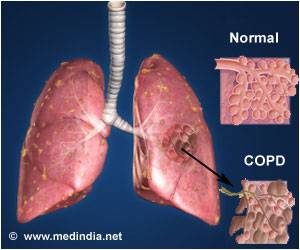MRI markers of small vessel disease (SVD) are now thought to be associated with worse cognitive health in older adults, finds a new study.

‘Small vessel disease (SVD) MRI markers are now thought to be associated with worse cognitive health in older adults.’
Read More..




The new findings challenge longstanding beliefs that these areas - known as perivascular spaces - are a harmless imaging marker.Read More..
When compared with common markers of small vessel disease, the study results showed a more frequent association between enlarged perivascular spaces and cognition than expected, according to senior author Angela Jefferson, Ph.D., professor of Neurology and director of the Vanderbilt Memory & Alzheimer's Center.
"Our work shows perivascular spaces are not clinically benign," Jefferson said. "These areas contributed to worse cognitive health in a way that was distinct from the other markers of small vessel disease. That result was unexpected and emphasized that enlarged perivascular spaces deserve further study."
The study, which looked at older adults who have not yet developed dementia, offers evidence that multiple neuroimaging markers of small vessel disease reflect distinct pathways of injury as well as early or late features of severity.
Cerebrovascular changes, including small vessel disease, are common in aging and contribute to unhealthy memory loss and dementia. Over 80 percent of all autopsy-confirmed cases of dementia are linked to cerebrovascular disease.
Advertisement
Study authors looked at whether each of the imaging markers related to cognitive activities, such as language, memory, visuospatial skills, information processing speed and executive functioning, and whether each of the imaging markers reflected a common or unique pathway of injury.
Advertisement
The most frequent associations in the study linked white matter hyperintensities and cognition, including language, information processing speed, executive functioning, and visuospatial skills.
Unexpectedly, for the researchers, the next most frequent links were between enlarged perivascular spaces and information processing speed and executive functioning.
"These results are important for any clinician or scientist who works in aging," Jefferson said. "Many of these small vessel disease markers are due to common vascular risk factors for cardiovascular diseases, such as high blood pressure or diabetes. We know these conditions can be prevented and treated, which means small vessel disease and its impact on abnormal cognitive changes can also be prevented."
Source-Eurekalert













